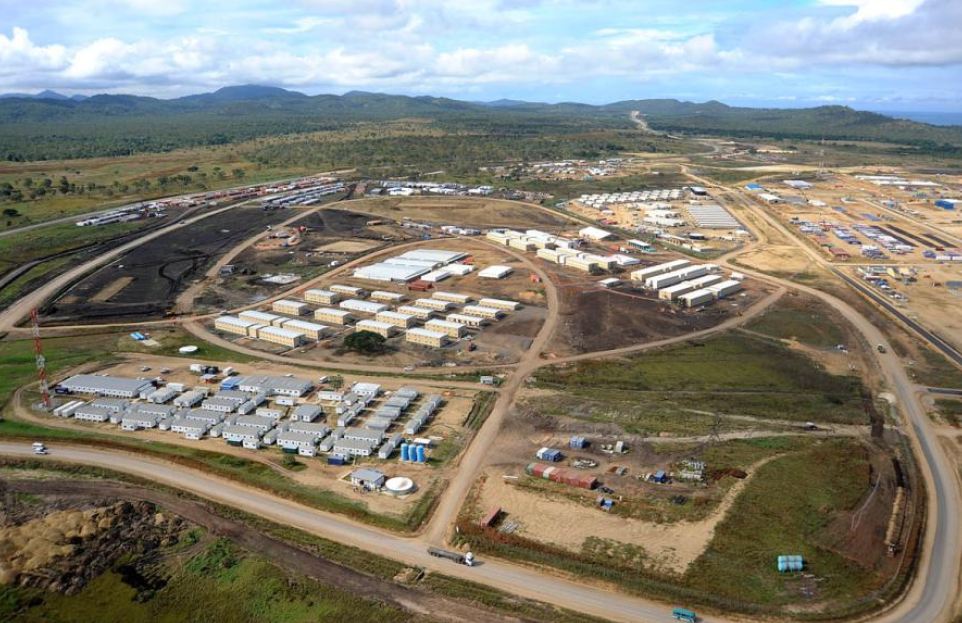A roundup of development policy issues in the Pacific by the Pacific Institute of Public Policy and the Development Policy Centre.
Our sincere condolences to the people of Tonga on the passing of King George Tupou V.
ADB criticizes PNG sovereign wealth fund
The ADB has criticized the design of the PNG Sovereign Wealth Fund, saying that more funds from the resources boom should be saved and less spent “until the government undertakes necessary public financial management reforms.” The ADB also takes exception to the creation under the just-passed Organic Law on Sovereign Wealth Fund Management of a new infrastructure authority. The Bank says that this will “absorb skilled staff from existing agencies, hollowing out already under-resourced service delivery institutions.” Rather than creating “new funding mechanisms that undermine institutions”, the PNG Government should “strengthen existing government agencies and systems.”
Also in PNG news, new Australian Foreign Minister Bob Carr got off to a shaky start over comments he made threatening sanctions and isolation if PNG did not stick to its election timetable. This prompted PNG senior officials and diplomats to react with dismay at the senator’s first foray into diplomacy in the region. Within days, Carr had moderated his comments and PNG’s government confirmed that elections would proceed as planned.
Also in PNG, a court order was issued for the case against Chief Justice Sir Salamo Injia to be dropped. In the latest twist to the ongoing saga, Deputy Prime Minister Beldan Namah called for the resignation of the chief justice and two other justices. For a reminder of the story so far, see the timeline on the Masalai blog.
MP Face to Face idea goes regional
The Pacific Institute of Public Policy (PiPP) launched its 2012 MP Face to Face series with a lively gathering on Pentecost island last week. This initiative aims to bridge the gap between politicians and voters in Vanuatu creating a new approach to civic awareness. These forums are being rolled out across the country to improve direct democracy and help steer the national conversation towards policy ideas rather than personality politics.
Now comes news the US government plans to support a similar program in PNG ahead of the election.
Constitutional consultation in Fiji
In another step along Commodore Bainimarama’s roadmap towards the 2014 elections comes the announcement of constitutional consultations in Fiji. The new commission has appointed Professor Yash Ghai, a veteran of constitutional architecture in the region, to oversee the process. Bainimarama has affirmed that anyone can participate in the consultations but that race-based parties will be ineligible to contest the elections.
Last week, Fiji’s president also formally abolished the Great Council of Chiefs.
Slowdown projected for 2012
After a year of strong economic performance, the ADB is projecting growth across the region to decline from a high of 7 per cent in 2011 to 6 per cent in 2012 and 4.1 per cent in 2013. Take out PNG and Timor Leste, and Pacific island growth falls from just over 3 per cent in 2010 to just under 3 per cent in 2011 and to about 2.5 per cent in 2012. The ADB cites slow global growth, rising oil prices and sovereign debt problems in Europe as contributing factors.
Vanuatu stands out as an exception. After its recent slump (with GDP growth declining to 2.3 per cent in 2010), growth in Vanuatu is estimated to have bounced back to 4.3 per cent in 2011 and is projected to reach 4.5 per cent in 2012 and 5 per cent in 2013.
The ADB parts company with the Government of Fiji on growth prospects for the Fijian economy. While the latter is projecting 2.3 per cent growth for 2012, the ADB thinks that growth will hit only 1 per cent.
Kiribati: looking for land?
President Tong recently raised the idea of purchasing land in Fiji although there is some uncertainty as to whether this is for resettlement or a business investment to generate national income.
Palau passes its 2012 budget
After five months of political wrangling, the government of Palau passed its 2012 budget amounting to USD 61 million.
This budget includes a number of notable policy changes, including welfare payments to no-income households, and consumption tax increases aimed at tourists. There will be an increase in the hotel room tax; and the “green fee revenue“, a departure tax, will also double. The latter will be used to fund the protected areas network (a set of marine protected areas), and improve water and waste management throughout the country.
In brief:
- Tonga mourns the loss of the late king George Tupou V.
- In a new report, the World Bank has challenged conventional thinking on development in the Pacific. The Development Policy Centre has published a blog summarising these findings.
- Results from a survey suggest that Tonga has the highest rates of domestic violence in the region. The statistics have found that three out of every four women experience violence from men at some point in their life.
- Micronesian leaders summit in Guam to discuss economic development education and health care.
- More shake ups in Solomon Islands after PM sacked 11 permanent secretaries.
- A kava conference in Vanuatu aims to overturn European ban.
- Vanuatu’s prime minister confirms commitment to a submarine cable to boost telecommunications.
- The Development Policy Centre will host a conference on Pacific islander migration and employment in Australia/New Zealand.
This biweekly roundup of development policy issues in the Pacific is a joint venture of the Pacific Institute of Public Policy and the Development Policy Centre. Editorial content is the responsibility of Derek Brien, PiPP Executive Director, and Stephen Howes, Devpolicy Director.



Leave a Comment